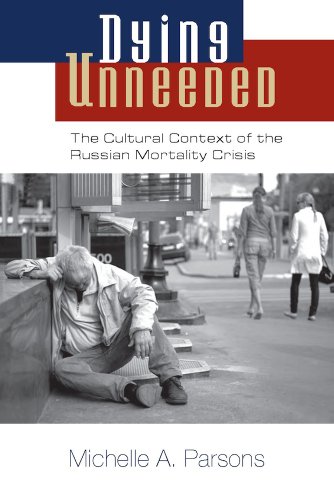
CURRENT POSITION
Associate Professor of Anthropology, Northern Arizona University
EDUCATION
- PhD, MA, Anthropology – Emory University, 2011
- SM, Population and International Health – Harvard School of Public Health, 2000
- BA, Human Biology – Stanford University, 1995
BIOGRAPHY
Dr. Parsons is a medical anthropologist interested in the application of ethnography to issues of population health, mental health, and global health practices and policies. Her areas of interest include medical anthropology, social epidemiology, global health, gender, anthropological demography, and post-socialism. Her work has examined the Russian mortality crisis, the US mortality crisis, and a global perinatal health project in Afghanistan. At the World Health Organization and Harvard School of Public Health, she worked on research in the areas of women’s health, reproductive health, HIV/AIDS, and medication use.
Dr. Parsons’s research focuses primarily on the application of sociocultural anthropology to health inequality and public health practice around the world. She wants to know how political economies give rise to social relations, which in turn influence health, health research, and health interventions.

Her first research project applied ethnographic methods to the Russian mortality crisis of the 1990s, a popular topic in epidemiology literature. In her book Dying Unneeded: The Cultural Context of the Mortality Crisis, Parsons examines the idea of being unneeded; i.e. having nothing to offer others. She also explores how being unneeded is often a gendered concept, affecting middle-aged men more than middle-aged women, who are often still needed by their families even in later stages of life. The book overall is a thorough commentary about how being unneeded relates to the concept of social capital and its use in quantitative analyses. The book was awarded Goldberg Prize for the best contribution to Medicine by Vanderbilt University.
Currently, Dr. Parsons is working on an ethnography of a global health project, addressing perinatal healthcare, surveillance, and donor ethics. She is in the process of developing a project on mortality disparities in the Northern Arizona context, which will use both quantitative and qualitative methods.
Before her graduate work in Anthropology, Dr. Parsons worked at the World Health Organization where she did global health research on HIV/AIDS testing and counseling, medication use, menopause, and the quality of health reports at Harvard School of Public Health and the World Health Organization.
email: Michelle [dot] Parsons [at] nau [dot] edu
RECENT PUBLICATIONS
- Parsons, M. A. (2022). Thinking about social determinants of health through the relationality of work and drug use. Medical Anthropology Quarterly, http://doi.org/10.1111/maq.12690.
- Parsons, M. A. (2021). Toward an ethics of global health (de)funding: Thoughts from a maternity hospital project in Kabul, Afghanistan. Global Public Health, https://doi.org/10.1080/17441692.2021.1924821.
- Ozawa-de Silva, C., & Parsons, M. A. (2020). Toward an anthropology of loneliness. Transcultural Psychiatry, 57(5), 613-622.
- Parsons, M. A. (2020). Being unneeded in post-Soviet Russia: lessons for an anthropology of loneliness. Transcultural Psychiatry, 57(5), 635-648.
- Parsons, M. A., & Barger, S. D. (2019). The US mortality crisis: An examination of non-Hispanic white mortality and morbidity in Yavapai County, Arizona. Journal of Community Health, 44(4), 661–667.
COMPILED BY: Elizabeth Chong, Emory College, 03/03/2022